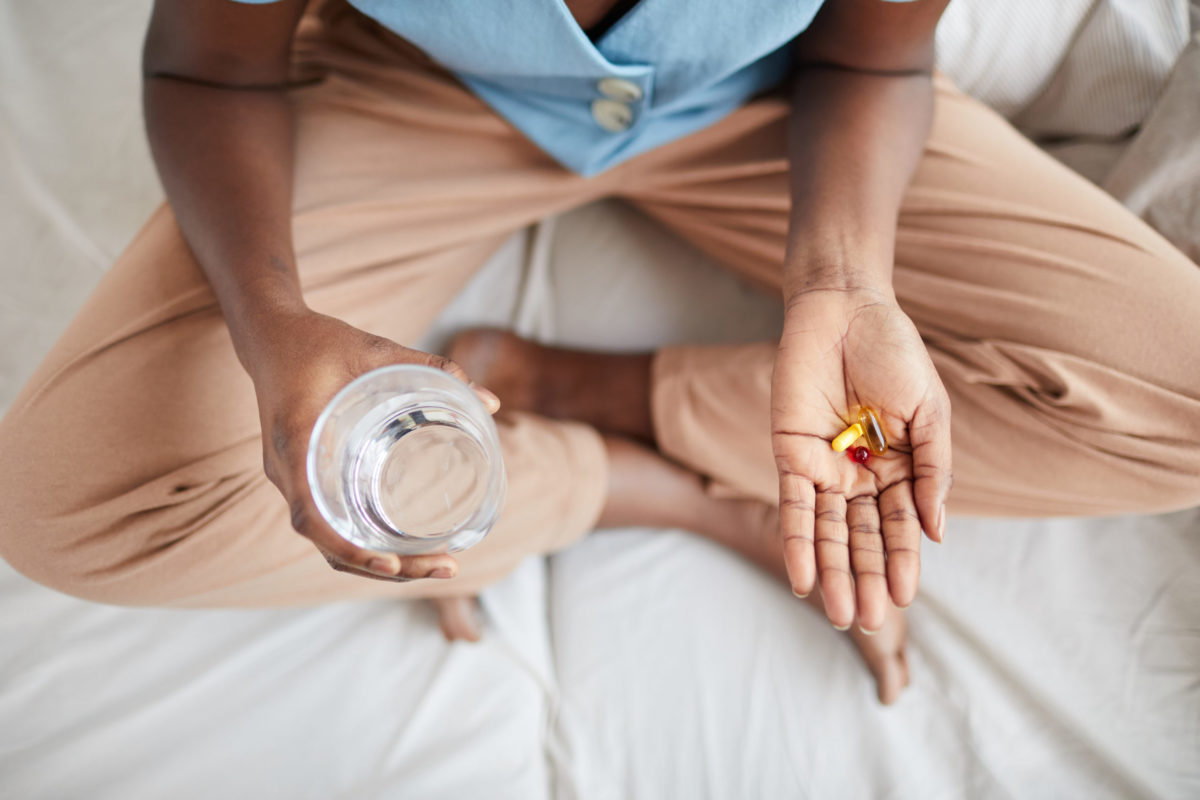Do you have any questions about this medication?
It’s the question we hear from our pharmacist when picking up a prescription. And it gives us a great opportunity to get expertise straight from the source. But many of us draw a blank when we hear it.
“When you’re first starting a medication and the pharmacist comes to talk to you, there may be a lot to go over,” says Dr. Jodie Kennedy, clinical pharmacist at BlueCross BlueShield of Tennessee. “And when we aren’t sure exactly what to ask, we may simply ask nothing. But medication adherence (taking them correctly) is what keeps diseases from getting out of control. So it’s important to take advantage of these one-on-one interactions.”
Here are 5 key questions to keep in your back pocket for your pharmacist or provider.
1. How do I take this medication? Do I take it with food or on an empty stomach?
Dr. Kennedy: Some medicines can irritate the stomach. Taking them with food reduces that effect. Others we need to take on an empty stomach because food and drink can interfere with the way they work.
Taking certain medicines with food may:
- Prevent your body from absorbing the medicine, making it less effective
- Increase the amount of medicine in your blood to dangerous levels, or decrease it to levels that are too low to be effective
- Neutralize the effect of the medication
Foods that can interact with medicines include:
- Cranberry or grapefruit juice
- Bananas
- Foods that are high in vitamin K, such as leafy greens
Also, be sure you discuss all other medications, supplements and over-the-counter drugs you’re taking so your provider or pharmacist can factor those in as well.
3 conditions where taking medication correctly can be life saving
2. When do I take this medication?
Dr. Kennedy: Some medications only work for a certain number of hours. If you’re supposed to take a medication every 12 hours but only take it in the morning, you’re only treating your condition half of the day.
Also, some medications are most effective when taken before bed. For example, our bodies produce cholesterol at night. So, if the cholesterol medication you’re prescribed doesn’t work for 24 hours, you may not be blocking cholesterol production at the right time.
This information will be on the medication packaging. But, it’s a good idea to write it down somewhere safe. Or, start a note on your phone with all that information so it’s always at your fingertips.
3. What side effects should I look out for? If I have a side effect what should I do?
Dr. Kennedy: Ask which symptoms are normal and which mean you should stop taking the medication. Your provider can offer tips for managing the normal symptoms.
And remember that every person and every reaction is different.
- If your friend had a side effect, that doesn’t mean you will, too.
- Medications list every possible side effect, but not everything happens to everybody.
- If you don’t like a medication’s side effects, talk to your provider. Don’t stop your medication unless they tell you to do so.
4. What do I do if I miss a dose? Skip it or take the next one as soon as I remember?
Dr. Kennedy: Forgetting to take your medication happens. With some you can take them as soon as you remember. Some you need to skip completely. Others you can double up on with your next dose. But for conditions like diabetes, heart failure or high blood pressure, you have to be careful.
Ask your doctor or pharmacist in advance what to do if you forget to take each medication. While it’s good to know their general recommendation, every situation is different. It’s always safest to call your pharmacist or provider and ask exactly what to do when it happens.
6 tips for remembering to take your medication (and why it matters)
5. This drug is expensive. Are there any alternatives I could try?
Dr. Kennedy: Some medications are very expensive. If cost is a concern, ask your pharmacist about alternatives, generic options or other classes of drug that may work differently but achieve the same result. Also, look for coupons online or ask your pharmacy if they have any discounts you can apply when you check out.
The most important thing is to find a pharmacist and provider you feel comfortable with. Once you establish that relationship, you’ll feel comfortable asking them for help with any prescription, any time.
More on medication from WellTuned
For more on how to talk with your provider about medications, read our Fall Prevention Q&A. Dr. Ann Brunetto offers advice about how to make a medication consult part of your routine visit.
Get more information about specific health terms, topics and conditions to better manage your health on bcbst.com. BlueCross BlueShield of Tennessee members can access wellness-related discounts on fitness products, gym memberships, healthy eating and more through Blue365®. BCBST members can also find tools and resources to help improve health and well-being by logging into BlueAccess and going to the Managing Your Health tab.


